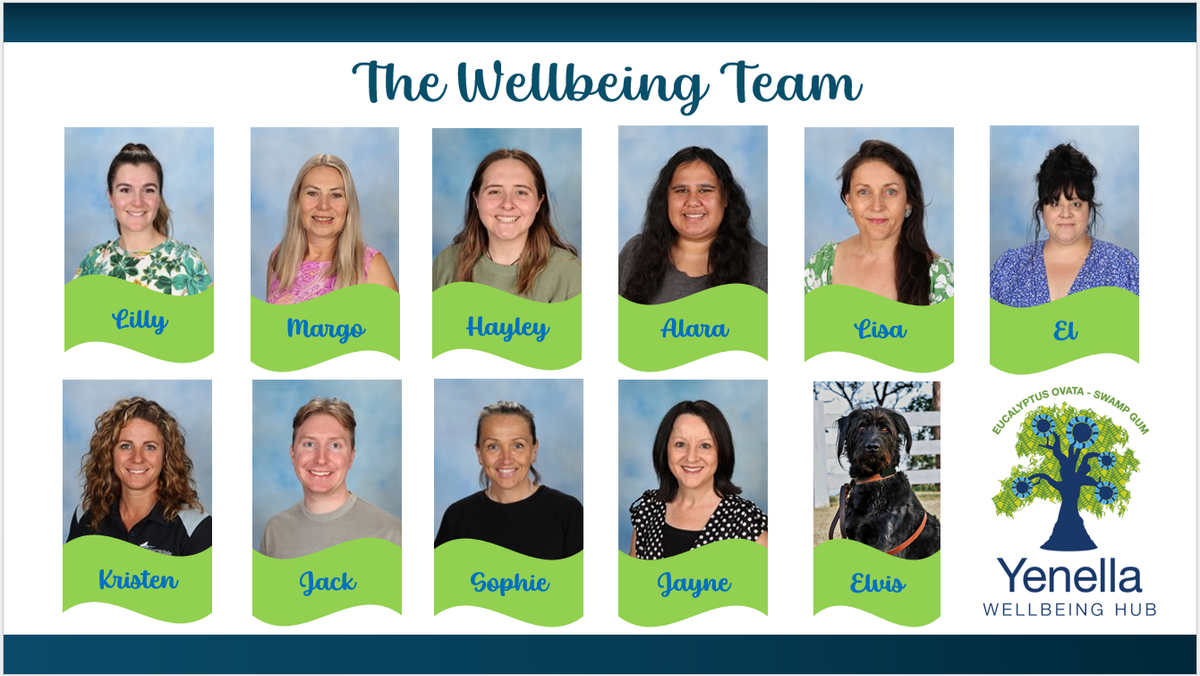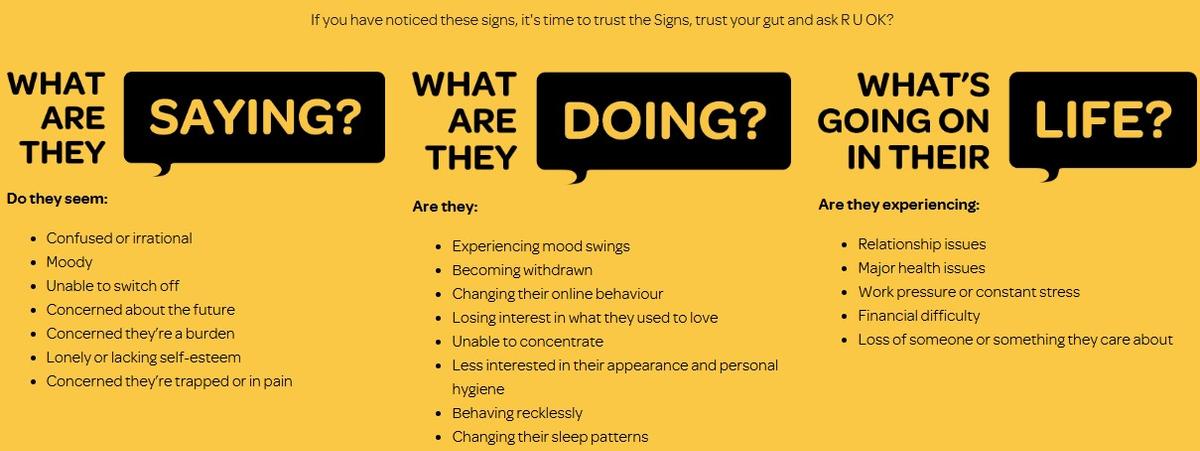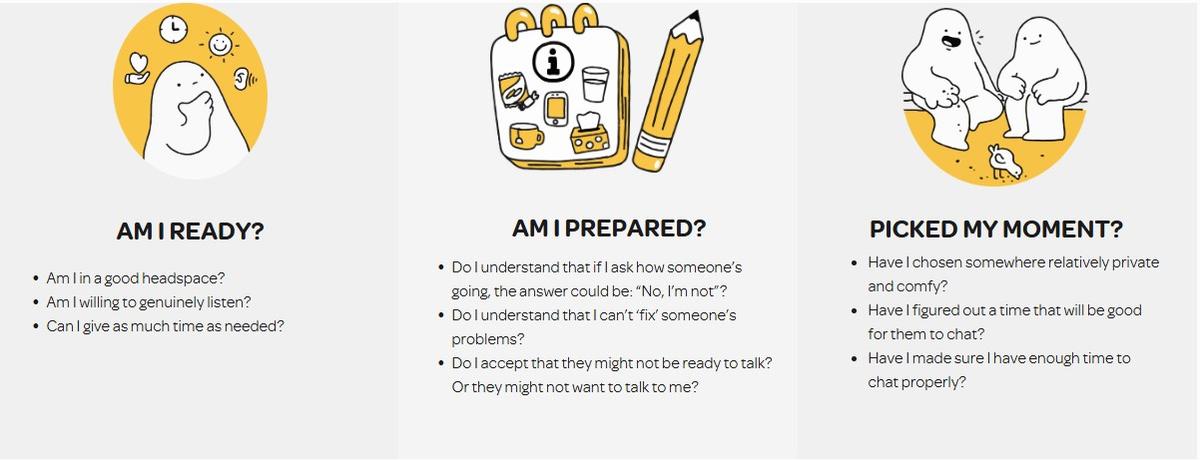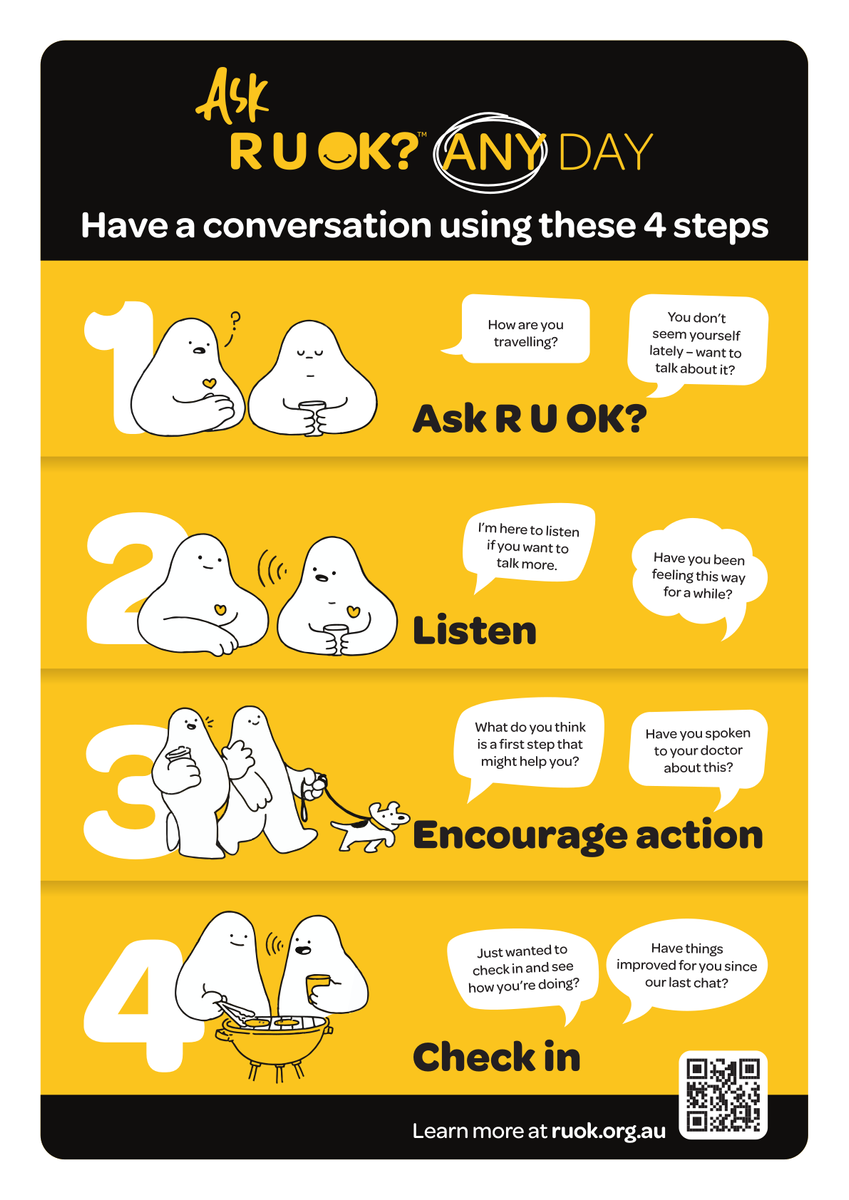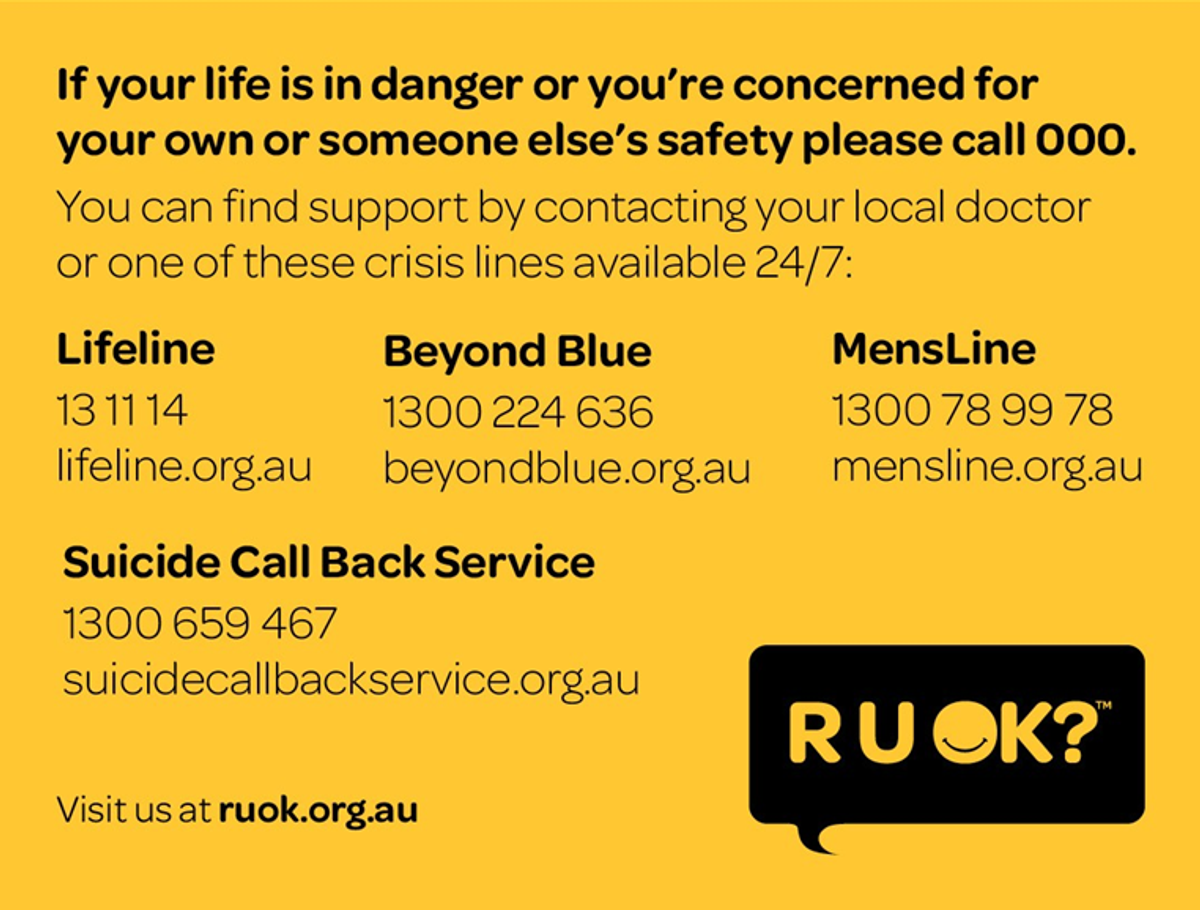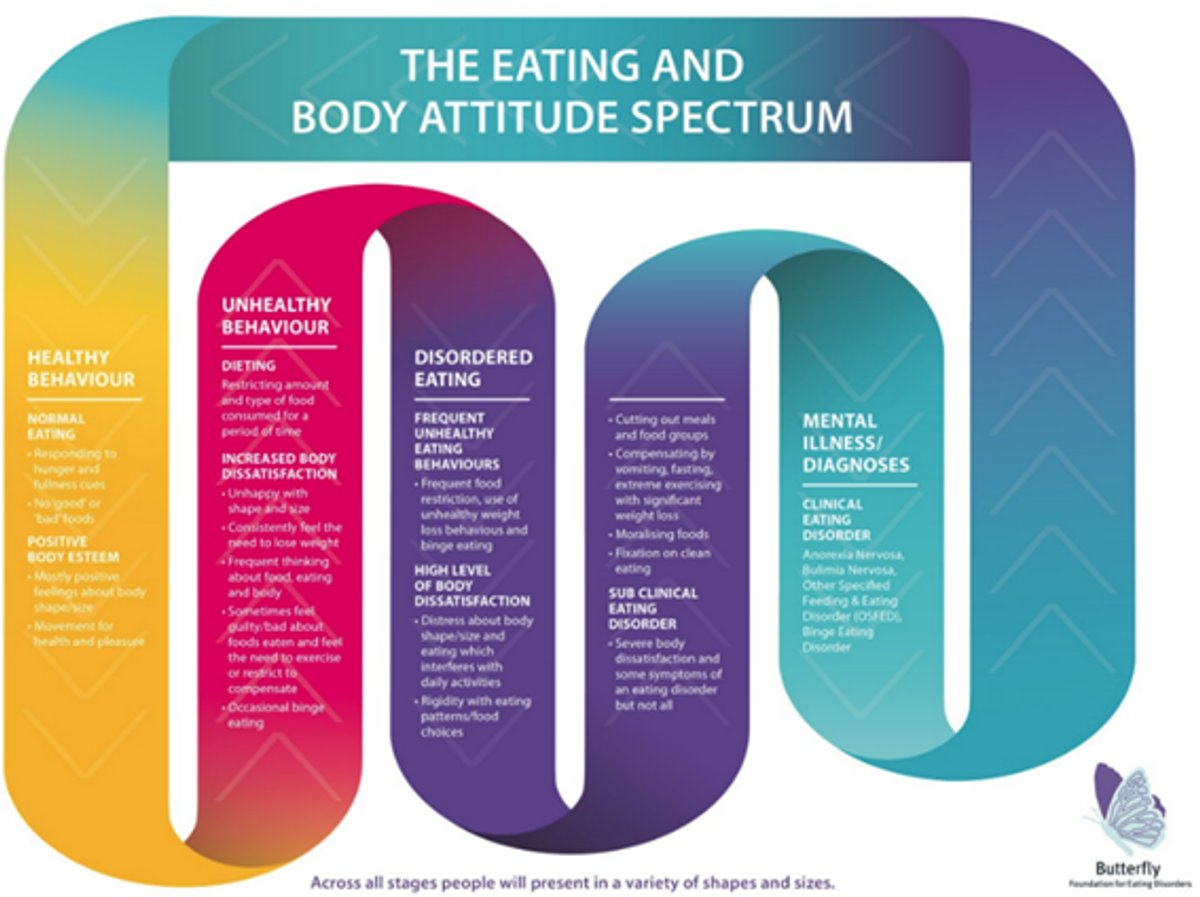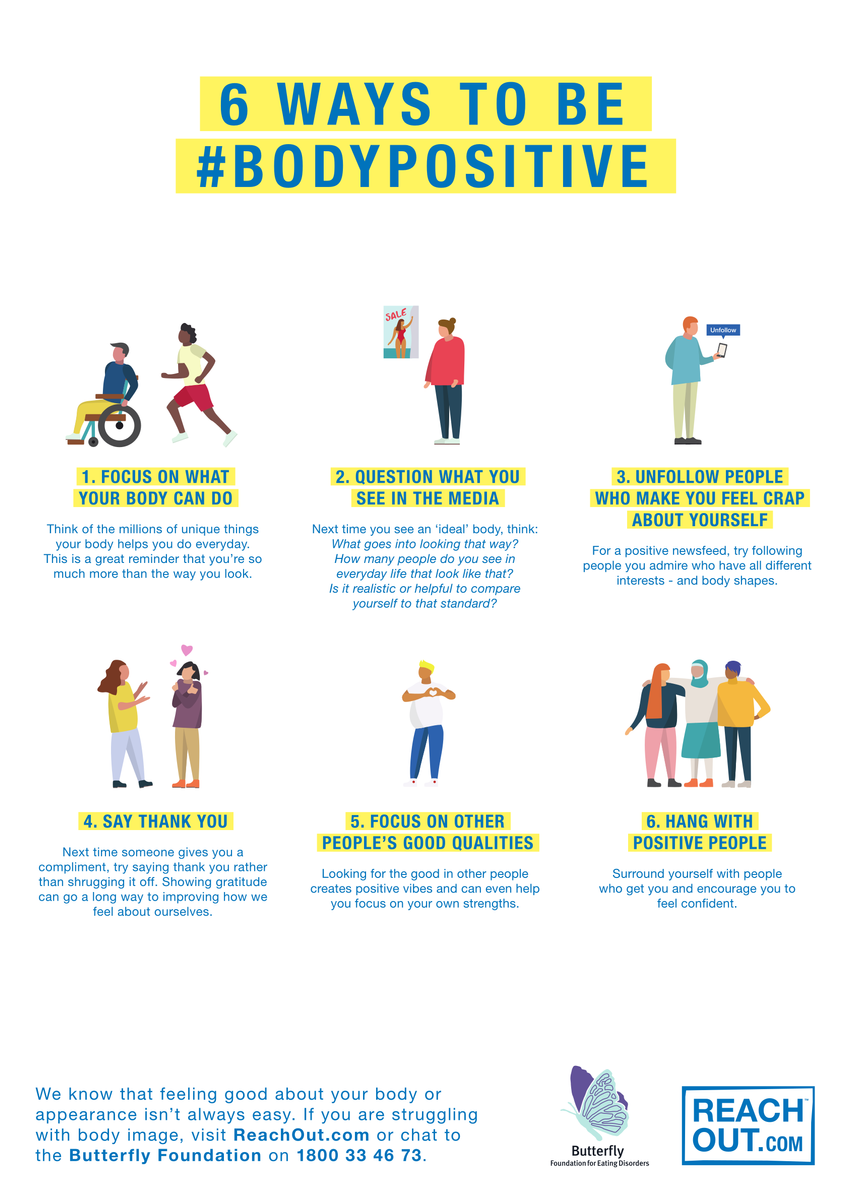Wellbeing
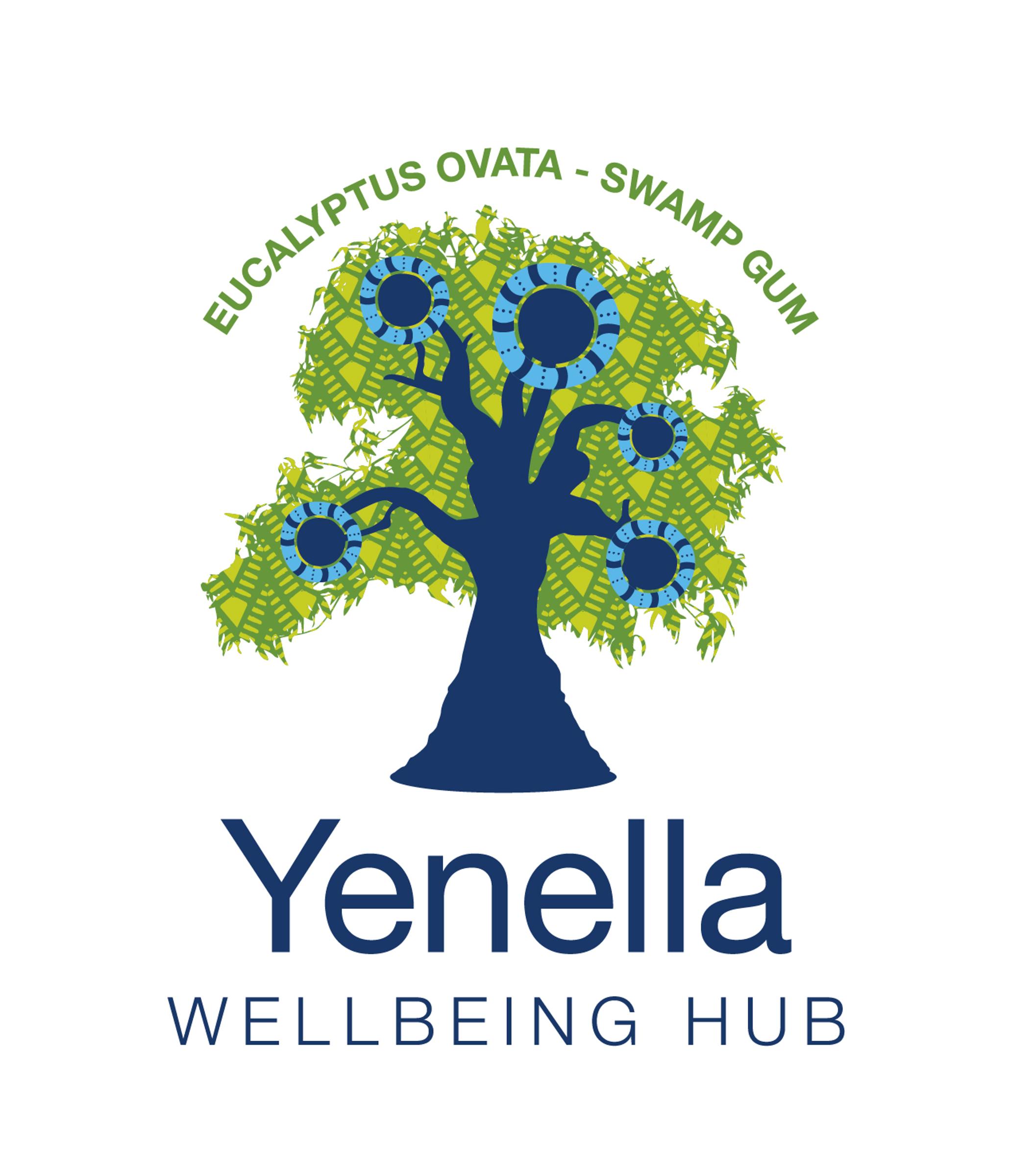
R U OK? Day held annually on the second Thursday of September, is an Australian National Day of Action encouraging people to connect with those around them and ask, "Are you okay?" The core message of the campaign is the importance of regularly checking in on your friends, family and colleagues. You don’t need to be a health professional to offer support: simply being a good listener can make a difference, and these conversations can save lives.
The SRC (Student Representative Council) have organised a fundraiser to help support the cause with a student Out of Uniform Day to be held on Thursday 11th September - wear a Splash of Yellow! Please support on the day with a gold coin donation or make an online donation to: R U OK? - Bairnsdale Secondary College - R U OK Day Their goal is to raise $1000!
During Break 2 on the day, Wellbeing will be offering a free sausage sizzle, in addition to our external community partners running other activities and games, plus a staff vs student basketball game. Come along and join the fun for a great cause!
WHEN: Thursday 11th September
TIME: Break 2
WHERE: Undercover basketball court
-----------------------------------------------------------------------------------------------------------------------------------
Learn the signs to know when it’s time to ask R U OK?
Before you can look out for others, you need to look out for yourself. And that’s OK. If you're not in the right headspace or you don't think you're the right person to have the conversation, try to think of someone else in their support network who could talk to them. Ask yourself:
The 4 steps of an R U OK? Conversation
Some conversations are too big for family and friends to take on alone. If you feel that someone needs professional help, below are some useful contacts for someone who’s not OK.
For more information, visit: A conversation could change a life | R U OK?
-------------------------------------------------------------------------------------------------------------------------------------
BODY IMAGE AND EATING DISORDERS AWARENESS WEEK
2nd – 8th September 2025
Body Image and Eating Disorder Awareness Week is an annual event held in Australia to raise awareness of eating disorders and concerns around body image. The event is organised by Butterfly, a registered charity that was set up to help those with eating disorders and body image concerns in Australia. During this time, we’re urged to think about and discuss eating disorders and their impact.
Why is building awareness still essential?
- 1 in 10 Australians will experience an eating disorder in their lifetime
- The number of people impacted by eating disorders has increased since 2012
- Less than 1 in three (30%) of individuals affected reach out for help
- Less than a quarter of people have referred someone they’re concerned about to support services
- 1 in 7 (14%) agree people with eating disorders could ‘snap out of it’
- Only 11% of people living in Australia can spot the signs/symptoms of an eating disorder
- Eating disorders are mental illnesses that can lead to further mental and physical health problems.
- Dealing with these issues can be a lonely and scary experience for the person suffering, as well as their friends and family.
Eating disorders are also widely misunderstood and can be subject to stereotyping and stigma. Anyone can suffer from an eating disorder, but many people do not feel safe discussing their issues or reaching out for support. One of the most important aims of Body Image and Eating Disorder Awareness Week is to raise awareness and educate the public around these issues, creating an environment where people feel safe accessing the support they need.
TYPES OF EATING DISORDERS
Anorexia Nervosa is characterised by restrictive eating that leads to a person being unable to maintain what is considered to be a normal and healthy weight. People experiencing Anorexia Nervosa possess an intense fear of gaining weight or becoming overweight, no matter their current weight and appearance.
Bulimia Nervosa is characterised by repeated episodes of binge eating, followed by compensatory behaviours, such a purging or excessive exercise. People experiencing Bulimia Nervosa often place an excessive emphasis on their body shape or weight.
Binge Eating Disorder is characterised by episodes of eating large amounts of food over very short periods of time, with no compensatory behaviours. People who experience binge eating often feel a loss of control during episodes of binge eating.
Disordered Eating is a disturbed and unhealthy eating patterns. They can include restrictive dieting, compulsive eating or skipping meals. Disordered eating behaviours, and in particular dieting are the most common indicators of the development of an eating disorder.
PICA is an eating disorder where people eat things that aren’t considered food. For example, they may eat dirt, chalk, soap, hair, laundry detergent, among other things.
Avoidant/Restrictive Food Intake Disorder (ARFID) is more commonly known as “extreme picky eating”. A person who is experiencing ARFID often shows highly selective eating habits, disturbed feeding patterns or both.
Body Image Explained
Our body image is formed by the thoughts, feelings, attitudes and beliefs we have about our bodies and how we look. This includes our shape, size, weight, gender identity, and the way our body functions for us. We may feel many different things about our body and appearance: sometimes satisfied/positive, sometimes dissatisfied/negative, sometimes a bit of both, or even neutral. Either way, our body image can influence how we engage with the world.
Who does it affect?
Who is affected by body image? In a word, everyone. Body image starts developing in early childhood and the relationship you have with your body and appearance—which typically evolves over the course of your lifetime—is one of the most significant, long-lasting and complex relationships you will ever have.
Are you at risk?
Use this simple and anonymous screening tool to help you know if you are experiencing symptoms of an eating disorder. This screening tool can help you to know if you’re at risk for an eating disorder. It will not give you a diagnosis, but you can use it to find out if you should see a trained health professional such as your GP or psychologist (if you have one). A professional trained in eating disorders can help you to understand what you are going through. They can also help you with care and support.
Are you at risk? - Butterfly Foundation
For further information/support contact:
Phone 1800 33 4673Online
Chat online - Butterfly FoundationWebsite
Support for Eating Disorders and Body Image Issues | Butterfly Foundation

